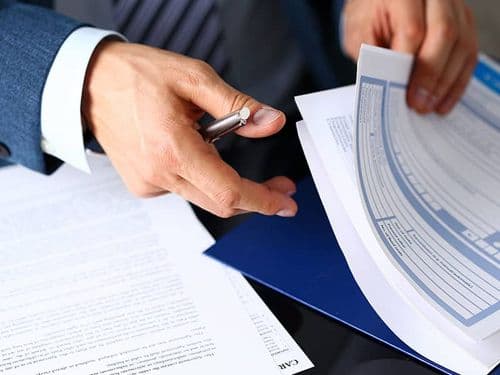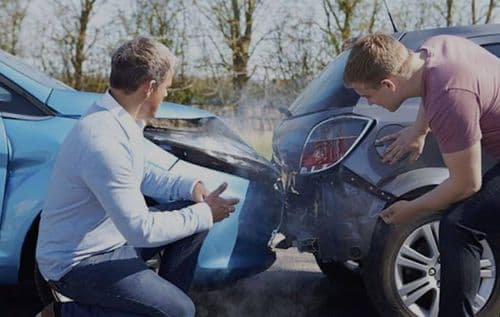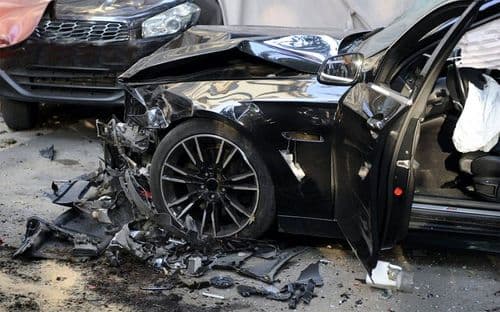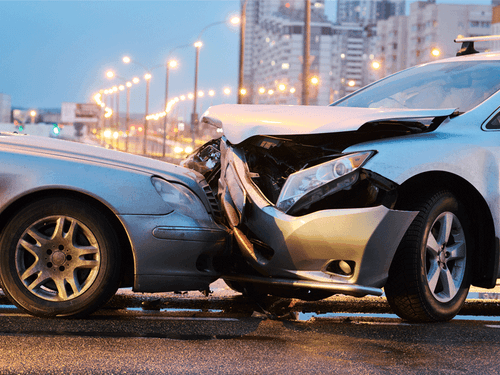Unfortunately, traffic accidents happen every day and many times, the lack of knowledge of the injured parties about how to manage compensation in traffic accidents means that they receive much less than what they are entitled to. Whether you have already been through it or have not yet suffered a traffic accident, we tell you everything you need to know if you want to claim compensation.
Entitlement to compensation in a traffic accident
In principle, anyone who is a victim in a traffic accident is entitled to compensation, unless they are solely at fault in the accident. If you are only partly to blame for the accident, because the other party is also at fault, then you are entitled to compensation if you have evidence to prove that they are at fault. Such as a friendly report, witnesses or a police report. In these cases, your compensation will depend on the degree of your responsibility for the accident. Also entitled to compensation are all passengers and occupants of the vehicles involved in the accident, regardless of who caused it, and pedestrians or third parties who can prove that they have suffered physical and/or material damage in the accident.
You can choose between your insurer and traffic accident lawyers
In order to claim compensation, it is essential to have the advice of a lawyer. The Insurance Contract Law offers you the possibility of choosing the lawyer of your choice: the one offered by your insurance company or an independent lawyer specialised in traffic accidents. In principle, the insurer's lawyer is free, this means that he will get paid the same sum whether you get compensation or not, and whatever the amount of compensation is. So it is normal to think that he will look after his payer's interests more than yours. On the other hand, if you hire a lawyer on your own, his or her fees will be a percentage of the compensation you receive, so he or she will certainly try to make it as high as possible according to your injuries. In any case, whatever your choice, you are entitled to have your insurance pay your lawyer's fees up to the limit indicated in the legal assistance section of the policy you have taken out.
Calculation of compensation
The calculation of compensation for traffic accidents is based on the injury assessment system in force on the date of the accident.
This system contemplates three types of compensation:
- For cause of death.
- For after-effects.
- For temporary injuries.
Therefore, the amount of compensation will depend on the seriousness of the injuries and damage suffered as a result of the accident. The greater they are, the greater the financial compensation will be.
However, the insurer will not pay any amount for concepts that are not justified by documentation.
Criteria for setting compensation
The following criteria are taken into account when setting compensation for damages suffered in a traffic accident:
- In compensation for death:
- Basic loss. Compensation is paid for damage that cannot be quantified economically, and is therefore common to all persons.
- Particular loss. This takes into account the specific circumstances of the injured parties, such as the death of both parents.
- Financial loss. The injured parties are compensated for loss of income and expenses resulting from the accident.
- In compensation for sequelae or permanent injuries, whether disabling or not. A measurement is made by points of the damage caused, with a maximum of 100, and based on this an amount is established:
- Very serious damages: between €90,000 and €150,000.
- Serious damages: between €40,000 and €100,000.
- Moderate damages: between €10,000 and €50,000.
- Minor damages: between €1,500 and €15,000.
- Aesthetic damages: between €9,600 and €48,000.
- Psychophysical, organic or sensory damages: between €19,200 and €96,000.
- In compensation for injuries or temporary incapacity. This takes into account the period that elapses from the time the accident occurs until the healing process is complete. A distinction is made between:
- Days of very serious injury.
- Days of serious injury.
- Days of moderate injury.
- The rest of the days.
- For each surgical operation.
Interest for delay in the payment of compensation
In the event that the insurer does not pay the compensation within the three months established by the Law, from the moment it has knowledge of the existence of victims in an accident caused by one of his insured persons, then it would be in "delay". This means that interest will have to be added to the compensation.
However, interest for late payment can only be claimed if the injured party sues the insurer, not being in agreement with the offer received, and obtains a higher amount than this by judgement.
In this case, the interest rate for late payment to be paid by the insurance company is:
- During the first two years after the accident: the legal interest rate with an increase of 50%.
- After two years from the accident: the interest will be 20% for each year.
The statement
When claiming compensation, it is essential to determine who is at fault in the accident. Therefore, if it is not possible to do so by means of a friendly report, it is necessary to call the police or the Guardia Civil to draw up a report.
In the statement, the police or Guardia Civil will determine both the circumstances in which the accident occurred and the responsibility for the accident.
A statement or report is an official document, so it will prevail over the statements of the parties involved in the event that there are discrepancies or simply that, given the seriousness of the accident, they do not clearly remember what happened.
The Insurance Compensation Consortium
The Insurance Compensation Consortium is a public institution linked to the Ministry of Economic Affairs and Digital Transformation. It is in charge of covering claims where private companies do not guarantee compensation to the injured parties.
This body has, among others, the following functions:
- To assume the compulsory civil liability cover for those private vehicles that do not find an insurer in the private market.
- Acting as a Guarantee Fund in the following cases:
- The cause of the accident is an unknown vehicle.
- The vehicle that has caused the accident does not have insurance.
- The damage has been caused by a stolen vehicle.
- The insurer declares itself insolvent to pay compensation.
Reasoned offer
As soon as an insurer becomes aware of the existence of a traffic accident, it must gather all the information about the accident and the personal and material damage caused. Based on this, it calculates the amount it considers appropriate as compensation for the injured parties and draws up a reasoned offer in which it explains why it proposes that amount and on what reports and data it is based.
The insurer has a period of three months to do so, otherwise it will be in default and interest for late payment will have to be added to the compensation.
Once the injured party receives the reasoned offer from the insurer, it is advisable to review the proposal with a specialised lawyer. In the event of not accepting it, in most cases, the next step is to file a legal claim against the insurer.
Contributory fault or negligence
Contributory fault is a legal concept that refers to the percentage of involvement of each of the parties in an accident. This means that several of the parties involved are responsible for the facts, even if in different proportions.
Prior to 2016, in the case of contributory negligence, the compensation received by each of the parties was divided according to the criterion of primary and secondary negligence. Since then, however, the concept of "contribution to the production of the damage" has been used.
Therefore, victims of road traffic accidents can claim compensation, but this will be reduced by up to 75% for:
- Lack of use or inadequate use of seat belts, helmet or other protective elements by the claimant.
- In the case of non-driving victims, if they have deliberately contributed to the damage.
- When the victim maintains a conduct that aggravates the damage caused in the accident.
- In the event that the injured party does not contribute to a quick recovery of the injured party.
Misdemeanour trial
The misdemeanour trial, which is now called a minor offences trial, is a procedure that is held before an examining magistrate's court to try minor criminal offences in an agile and rapid manner, as the intervention of a lawyer and solicitor is not necessary.
Before 2015, the date of the latest reform of the Criminal Code, claims for injuries in traffic accidents were handled in misdemeanour trials. Since then, however, these matters have been tried in the civil sphere, before the Courts of First Instance.
However, there are some road accident claims that are still handled in the criminal courts:
- Serious injuries, even if they are the result of slight negligence.
- Injuries which, although not serious, are the result of serious negligence on the part of the defendant.
Compensation for traffic accidents
In 2022, the schedule has been increased by 2.5% compared to last year's schedule of compensation for traffic accidents. In addition, with the new scale, 9% more will be paid for loss of earnings in the case of compensation for death.
Another of the new features of this year's scale is the increase in coverage for consequential damages in medical expenses or vehicle repairs. In addition to a 49.1% increase in compensation for injuries with non-disabling sequelae and 91% for those with disabling sequelae.
In the case of temporary incapacity, compensation may increase by up to 57% depending on whether the incapacity is absolute or total.
Why hiring a traffic accident specialist like Trafilex?
The time taken by an insurance company to deal with a traffic accident claim is usually very long, as they delay the response time as much as possible. In addition, many insurance companies try to pay very small compensations, without knowing the exact extent of the injuries caused by the traffic accident. The complexity of interpreting the scale and the constant changes in the regulations make it essential to have lawyers who specialise in claiming compensation for traffic accidents. Therefore, by hiring the services of a lawyer specialised in traffic accidents you can obtain the maximum compensation established by the Law and in a much shorter period of time. In addition, a lawyer will give you the best advice on medical matters, as it is very common for insurers to fail to provide the best possible rehabilitation.
How much does it cost to hire Trafilex?
Most insurance policies include Legal Defence cover, which can be used to cover the costs of lawyers. This cover provides the insured with money to hire the services of a lawyer external to the insurer, with the amount varying depending on the policy and the company with which the insurance policy is taken out. That's why at Trafilex we don't charge you if you don't get paid.
If you need to claim compensation for injuries and damages suffered in an accident, do not hesitate to contact Trafilex. You will be advised on how to proceed throughout the process and they will help you claim fair compensation for your injuries.








